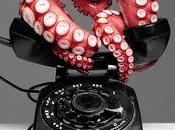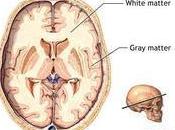 Papyrus, parchment, books and finally e-books. The written word has come a long way. Letter by letter, word by word, writing has marched forward, in Indian file, on its calm, inexorable way towards the e-book. It has abandoned its original host and migrated to a fresh platform, where films, music and TV series have already gone. This is a world in which lines follow lines, but do not remain still. Change the size of the characters and the written page turns into a measuring tape which lengthens and shortens according to what it is being used to measure. The e-book has brought about one of the profoundest changes which our society has had to face. The written word forms the instructions by which human civilisation is being built. “On the written word have been built houses, cities and states.” This explains why the topic has aroused such strong reactions: with books, there comes considerable emotive baggage. It is more acute than the transition from the lira to the euro!
Papyrus, parchment, books and finally e-books. The written word has come a long way. Letter by letter, word by word, writing has marched forward, in Indian file, on its calm, inexorable way towards the e-book. It has abandoned its original host and migrated to a fresh platform, where films, music and TV series have already gone. This is a world in which lines follow lines, but do not remain still. Change the size of the characters and the written page turns into a measuring tape which lengthens and shortens according to what it is being used to measure. The e-book has brought about one of the profoundest changes which our society has had to face. The written word forms the instructions by which human civilisation is being built. “On the written word have been built houses, cities and states.” This explains why the topic has aroused such strong reactions: with books, there comes considerable emotive baggage. It is more acute than the transition from the lira to the euro!
 Some people “assert that books are so convenient, so intricately bound up with sentiments and habits that they will never be abandoned”, writes Mauro Sandrini. But these are the same people who, a century and a half ago, said that women were too attached to needle and thread to adopt sewing machines, or that they preferred to wash by hand than use washing machines.
Some people “assert that books are so convenient, so intricately bound up with sentiments and habits that they will never be abandoned”, writes Mauro Sandrini. But these are the same people who, a century and a half ago, said that women were too attached to needle and thread to adopt sewing machines, or that they preferred to wash by hand than use washing machines.
“It is clear that each technical innovation has the capacity to destroy whatever came before it, and that it will wipe out an entire area of people’s habitual behaviour.” But we should resign ourselves to this, because, as Francesco Cataluccio maintains, in a short time “there will be a generation of people who will be used to working with non-material books and who will feel no sense of loss whatever at the passing of paper books for the simple reason that they will never have been in the habit of handling them.”
In his book, In praise of e-books, Mauro Sandrini analyses every aspect of this epoch-making change. His book was self-published last January and put on sale for 99 cents, in exclusively digital format. But do not imagine that Sandrini is a fanatical high-tech nerd. For him, “technology is a black hole” in which he never feels entirely at ease. Despite this, one day he looked at his books and thought to himself, “Just looking at my bookshelves makes me think they are too heavy… I’d like to get rid of most of the books. They no longer have a material use. These books all make me feel tired, they weigh me down. It’s like going around wearing a heavy overcoat in midsummer.”
 And lo and behold, the e-book became a means of unburdening himself, of emptying his bookshelves, whilst yet keeping the books that they had contained.
And lo and behold, the e-book became a means of unburdening himself, of emptying his bookshelves, whilst yet keeping the books that they had contained.
“Technology is as violent and painless as a guillotine when it thrusts itself into people’s lives. In a stroke it cuts off the past from the future and reduces the present to the duration of a flash. What was there before will never be there again.” E-books may now be the rage, but within a few years it will be normal to read books on an electronic tablet. What was once a craze will no longer be so, because it will be part of our daily lives. “The guillotine of technology sheds no blood but obliterates habits while creating new ones.”
Precisely how long it will take the guillotine of technology to do its work is hard to predict as there are so many factors and the situation varies from country to country. But the short-term forecast is not very illuminating. There is a point at which it is raining and a point where it is no longer raining. What use is it to try to work out where the rain begins and ends? Suffice it to know that the change we are seeing is irreversible and that in twenty years’ time it will all have been completed.
According to the journalist and researcher Frederic Martel, it is exactly this acceleration, preventing us from seeing the future, which is causing the anxiety through which we are living. Today everything is moving very fast and it is difficult to keep up. Two years ago no one was talking about Twitter, five years ago no one was talking about Facebook or YouTube, and ten years ago no one would have talked about Google or Wikipedia. But Sandrini seems to be retorting that these are fascinating times precisely “because they enable us to imagine the future and start to build it.”
So let us examine what has happened in our space by thinking for a moment about music, which has already undergone this phase of change. “If our shelves are empty of CDs and records,” writes Mauro Sandrini, “our days are certainly not empty of music.” Quite the contrary: music consumption has gone up.
Thanks to their non-material nature, e-books no longer have to be sold in bookshops; they can be sold anywhere. “An online store is like a street market stall which can be positioned in just the right place, where there are the greatest numbers of passers-by.”, maintains Antonio Tombolini of Simplicissimus, an online bookstore: in exchange for a space and a link on a particular web site, a percentage of the turnover from sales can be offered. Thus on the virtual street stall, advertising and book sales come together. With digital, there will no longer be any pulping of returns or oversupply. “The publishing industry, and our bookshops, are drowning in oversupply – in Italy there are 2900 publishing houses which put out 61 000 titles a year. And this continues even though six titles out of ten hardly sell a single copy”, explains Francesco Cataluccio in his pamphlet What’s Going To Happen To Books? Today three billion books are sold annually worldwide, amounting to nine million trees being cut down. This saving on cellulose will give forests more breathing space.
![scrittura cinese[4] The written word changes abode](http://m2.paperblog.com/i/55/557464/the-written-word-changes-abode-L-ow3Lf7.jpeg) However, the question is: how are writers going to live? The spectre of free books is making them lose sleep. And who can blame them when their very intellectual property is at stake? At the same time it is hard to go against the nature and philosophy of the Internet, where information is free. As Cataluccio notes, “Anyone who tries to charge for anything online finds himself rejected, marginalised or robbed.”
However, the question is: how are writers going to live? The spectre of free books is making them lose sleep. And who can blame them when their very intellectual property is at stake? At the same time it is hard to go against the nature and philosophy of the Internet, where information is free. As Cataluccio notes, “Anyone who tries to charge for anything online finds himself rejected, marginalised or robbed.”
Research carried out by Cerioli and Re Franceschi of the Catholic University shows that 46 per cent of best-sellers available in bookshops are available in pirated versions, and the most-pirated books are those which do not exist in digital form or which carry a very high price. But in any case, e-book prices will be drastically cut thanks to the disappearance of the middlemen, including publishers, printing workshops and bookbinders. The book may cost less, but the percentage that goes to the author will be higher. However, if a book now costing 20 euros is to be sold for one euro in the future, earnings will be seriously reduced. This may be all right for authors of best-sellers, but how will the rest manage?
Sandrini observes that the music record market collapsed with the arrival of mp3 files, so now that no one buys discs any more, most musicians live by giving concerts. It is the music publishing houses that have lost out. Rather than concerts selling music, it’s now the other way round.
This revolutionary upset is difficult to swallow. But even Cataluccio agrees that “writers and academics will no longer live on earnings from books – which will increasingly be found online for free, in a showcase for their talent – but through public readings and conferences which will be charged for. We will go back to the time of the “aedi”, of “sublime balladeers, like Homer or Ariosto who declaimed their work at court or in the public forum, and who certainly did not live off their copyrights.” Who knows whether the proliferation of literary festivals, some of which charge an entry fee, are a first step in this direction.
 I do not know whether writers will return to being balladeers, but there is no doubt that the relationship between writers and the reading public is changing. Until recently they moved along parallel lines that never met, but now they can meet and develop a direct, more equal relationship. One only has to look at what is happening on Facebook and other social networks to see that a writer makes “friends” with his readership, tells them about new initiatives that might interest them, chats with them and shows them his travel photos. Relationships take on a new value: communities of people with similar interests form new lobbies. Moreover, since there are no physical limits, digital supply acquires an oceanic dimension. Thus there is now a need for someone who can choose, discriminate, who assumes the role of a guarantor of quality. Today a message on Facebook, a tweet or a posting by a blogger count for more than the measured judgement of a literary critic. We learn to trust those whom we know, who belong to our own community.
I do not know whether writers will return to being balladeers, but there is no doubt that the relationship between writers and the reading public is changing. Until recently they moved along parallel lines that never met, but now they can meet and develop a direct, more equal relationship. One only has to look at what is happening on Facebook and other social networks to see that a writer makes “friends” with his readership, tells them about new initiatives that might interest them, chats with them and shows them his travel photos. Relationships take on a new value: communities of people with similar interests form new lobbies. Moreover, since there are no physical limits, digital supply acquires an oceanic dimension. Thus there is now a need for someone who can choose, discriminate, who assumes the role of a guarantor of quality. Today a message on Facebook, a tweet or a posting by a blogger count for more than the measured judgement of a literary critic. We learn to trust those whom we know, who belong to our own community.
With e-books, there is no longer a problem of minimum length. A book no longer needs to have a certain number of pages, which in any case don’t exist and so novels can come to an abrupt conclusion because you don’t realise that you are coming to the end. Short stories or chapters can be sold, even poems, just as on i-Tunes single tracks of music are on sale.
Another feature that e-books have inherited from the Internet, which after all is in the same mould, is that they can be endlessly edited and changed. Not only can misprints be corrected but radical changes and additions can be made at no extra cost. In Cataluccio’s judgement, this is changing the very nature of books, from being a closed work to an open, modifiable one.
Then, thanks to the Net, a book can also become a collective work. According to self-publishing expert Piotr Kowalczyk, the most interesting thing about self-publishing is not the people who work alone, but those who work together: communities of writers who help each other. One example is “An Indie Call to Action”, a service which allows a writer to put online a text which can then be edited by others, paragraph by paragraph. A hierarchy is formed, the top of which is occupied by those who have done the most editing. Alternatively, on Twitter, there is Friday Flash, which helps to boost writers’ visibility. Every Friday, the writers share their short stories. At the top of the “Friday Flash” list are those who write the best stories. An example is Joanna Penn, who before publishing her own book had for two years helped other writers. Subsequently these grateful writers helped her to sell her book. As a result, when in February she sold Pentecost, it was among the top thousand best-sellers in the Kindle store after only 24 hours.
But surely this is akin to a writers’ chain letter! Without the intervention of a publisher, is there not a risk of overproduction of “vanity books”, or books written as part of a mania for literary prestige? Not at all, says Kowalczyk, because the Internet readership makes the selection so that only the best books are bought or downloaded.
 So the Internet is not paradise on earth, and self-publishing is not a universal panacea because at the end of the day, books have to be sold. But, says Mauro Sandrini, even saleability is no longer a criterion. It was never a criterion even in the world of paper publishing, since, along with best-sellers, publishers also turned out books of quality, less attractive to the public at large. On the Internet every book can have its own market, however large or small. Very small numbers of copies of very large numbers of different titles may be sold, which in sales terms is the same as selling very large numbers of the same title. And on the Net the most abstruse topic will find its public. As Antonio Tombolini maintains, there is no such thing as an out-of-print e-book. An e-book is for ever.
So the Internet is not paradise on earth, and self-publishing is not a universal panacea because at the end of the day, books have to be sold. But, says Mauro Sandrini, even saleability is no longer a criterion. It was never a criterion even in the world of paper publishing, since, along with best-sellers, publishers also turned out books of quality, less attractive to the public at large. On the Internet every book can have its own market, however large or small. Very small numbers of copies of very large numbers of different titles may be sold, which in sales terms is the same as selling very large numbers of the same title. And on the Net the most abstruse topic will find its public. As Antonio Tombolini maintains, there is no such thing as an out-of-print e-book. An e-book is for ever.
Magazine Cultura
Possono interessarti anche questi articoli :
-
Lovecraft chiama – Chi risponde?
HPL 300 è fermo da qualche settimana, complice il forfait dell’autore del capitolo 18 (per reali motivi di forza maggiore). Aggiungiamoci anche che, per miei... Leggere il seguito
Da Mcnab75
CULTURA, LIBRI -
Anteprima: So che ci sei di Elisa Gioia
So che ci seidi Elisa GioiaPrezzi Cartaceo: € 18,50 Ebook€: 9,99Pagine 406Pubblicato a giugno 2015ISBN 978-88-566-4445-6C’è qualcosa di peggio che essere tradit... Leggere il seguito
Da Madeline
CULTURA, LIBRI -
LINDSEY STIRLING domani 1 luglio al Pala Alpitour – Foyer Grande – Torino e il ...
Lindsey Stirling,la violinista californiana famosa per i suoi virtuosismi con l’archetto in cosplay, mercoledì 1 luglio sbarca in Italia e si esibirà a... Leggere il seguito
Da Musicstarsblog
CULTURA, MUSICA -
E’ online il video di “attimi”, nuovo singolo della cantante idhea
E’ ufficialmente online su tutte le piattaforme multimediali il video di “Attimi” della cantante pop rock Idhea. “Attimi” è il secondo brano estratto dal suo... Leggere il seguito
Da Musicstarsblog
CULTURA, MUSICA -
“The Lost Tapes”: Sonia Caporossi, “Anormalia” (Gennaio 1995)
Sonia Caporossi, “Autoritratto scimmiesco”, 2013 Sonia Caporossi, AnormaliaSuonato interamente con un Roland JD800 synthesizer.Mixato con un registratore... Leggere il seguito
Da Criticaimpura
CULTURA, SCIENZE, SOCIETÀ, DA CLASSIFICARE -
A me la tua mente: il progetto mk ultra (prima parte)
Un piccolo documentario, anzi meglio una denuncia sulla manipolazione mentale made in Italy. Preparai questi video tempo addietro e poi li lasciai decantare... Leggere il seguito
Da Marta Saponaro
CULTURA, DIARIO PERSONALE, PARI OPPORTUNITÀ, PER LEI -
Oltre i confini della propria libreria: come la traduzione ci salva...
Se osserviamo con onestà la pila di volumi che giace sul nostro comodino o scorriamo le classifiche dei bestseller settimanali, noteremo quasi sicurament... Leggere il seguito
Da Nicolasit
CULTURA, LAVORO, LIBRI







